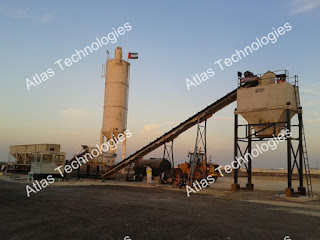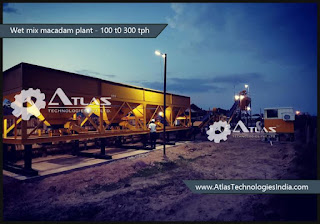Asphalt batch plant vs Drum plant
When it comes to choosing between an asphalt batch plant and
a drum plant, there are several factors to consider. Here are some key
differences between the two types of plants that can help you make an informed
decision:
Production Volume: Asphalt batch plants are
better suited for producing small to medium-sized batches of asphalt, while
drum plants are better for producing large volumes of asphalt.
Production Speed: Drum plants are generally
faster than batch plants, as they can produce asphalt continuously, whereas
batch plants require several cycles to produce a batch of asphalt.
Quality Control: Batch plants offer better
quality control because each batch can be adjusted and monitored, while drum
plants may have more variability in the quality of the asphalt produced.
Cost: Batch plants are generally more expensive
to operate due to the need for more equipment and labour, while drum plants
have lower operating costs.
Environmental Impact: Drum plants produce more
emissions and noise pollution than batch plants, so if environmental concerns
are a priority, a batch plant may be a better choice.
Ultimately, the choice between an asphalt batch plant and a
drum plant will depend on your specific needs and priorities. It's important to
consider factors such as production volume, speed, quality control, cost, and
environmental impact when making your decision.
Atlas Technology offers both asphalt
batch plants and drum plants. Here are some features of each type of plant:
Asphalt Batch Plant:
Available in stationary and mobile configurations
Produces batches of
asphalt in discrete steps
Offers better quality control as each batch can be adjusted
and monitored
Suitable for small to medium-sized batches of asphalt
Can be customized to include features such as RAP (Recycled
Asphalt Pavement) feed systems and hot oil heating systems
Asphalt Drum Plant:
Continuous production of asphalt
Available in stationary and mobile configurations
Faster production speed than batch plants
Lower operating costs
Suitable for producing large volumes of asphalt
Can be customized to include features such as RAP (Recycled
Asphalt Pavement) feed systems and baghouse filtration systems
Overall, both types of plants have their advantages and
disadvantages, and the choice will depend on your specific needs and
priorities. Atlas Technology can work with you to determine the best type of
plant for your project and customize it to meet your specific requirements.




Comments
Post a Comment